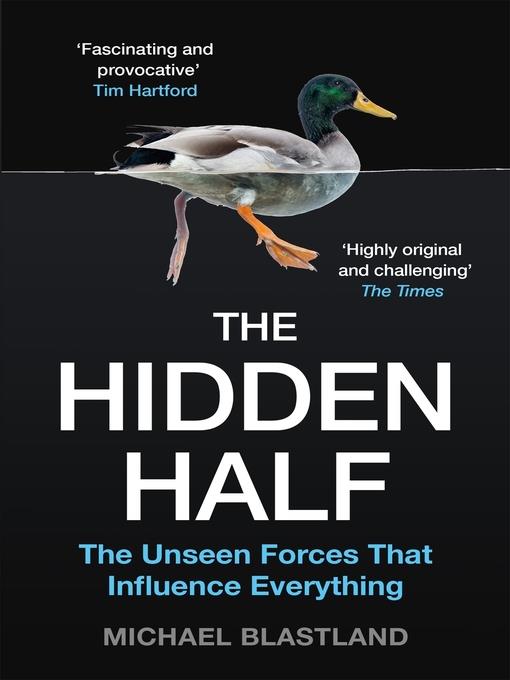
The Hidden Half
How the World Conceals its Secrets
- اطلاعات
- نقد و بررسی
- دیدگاه کاربران
نقد و بررسی

August 15, 2020
We know a fraction of what we think we know--and, writes journalist Blastland, even that is likely to be wrong. This is a book-length exercise in what philosophers call epistemic humility, which the author, co-author of The Norm Chronicles, a study of risk, glosses as "intellectual humble pie to the rest of us." If clones are supposed to be identical copies of some master unit, how is it that marmorkrebs, or cloned crayfish, vary markedly in size and other qualities when they're "identical batch-mates in the same conditions"? If economists are so smart, why couldn't we avoid the worldwide 2008 financial collapse? Why is it that a gaggle of juvenile delinquents, studied over a long period, deep into adulthood, diverged into repeat offenders and model citizens, given the same backgrounds and disadvantages, and that identical twins can be so downright different? Blastland's answers are considered and developed at leisure, but in the end, they boil down to the proposition that although we are wedded to ideas of order and regular patterns, the world is chaotic. Acknowledging this, he continues, allows us to see chance, noise, and like things that rationalists detest as instead "a positive force for disruption." That positivity doesn't help us avert what Nassim Nicholas Taleb calls a black-swan event, but it does go a long way toward explaining oddities of human behavior. In one experiment, Blastland elicited political opinions from a group of volunteers, then wrote down the opposite of what the respondents said, only to have them passionately and rationally defend the viewpoint exactly counter to their own. We believe what we want to, it seems. Chaos and contingency also help explain the rise of Donald Trump and the success of the Brexit movement, neither of which should ever have happened. The author closes with a dozen useful pointers for navigating uncertainty, including the mandate, "Don't use probability to disguise ignorance." Skeptics will be sure of even less after reading Blastland's book--and that's a step in the right direction.
COPYRIGHT(2020) Kirkus Reviews, ALL RIGHTS RESERVED.

August 24, 2020
British radio broadcaster Blastland (The Norm Chronicles) takes a wide-ranging look at the limitations to the human ability to understand the world through data. Challenging received wisdom across a broad swath of disciplines, he begins with biology, focusing on marmorkrebs, a recently discovered variety of crayfish who can reproduce asexually, via unfertilized embryo. The scientific assumption is that these animals’ offspring, if all raised under the same conditions, would be identical to each other, but that has not proved the case. Nature and nurture have their say, Blastland contends, but there is another, as yet unknown, group of factors with equal sway. Elsewhere, he observes that “nearly 90% of... peer-reviewed findings did not appear to stand up” and that “maybe 40% of continuing medical procedures are either useless or positively do harm.” Venturing outside the realm of science and medicine, Blastland comments on how few professional economists or political analysts accurately predicted, respectively, China’s post–Tiananmen Square rise or Donald Trump’s 2016 electoral victory. Calling for “uncertainty... to be reclaimed from the cynical to become a weapon of the responsible,” this excellent work makes a convincing appeal for intellectual humility in the face of the unknowable.




دیدگاه کاربران